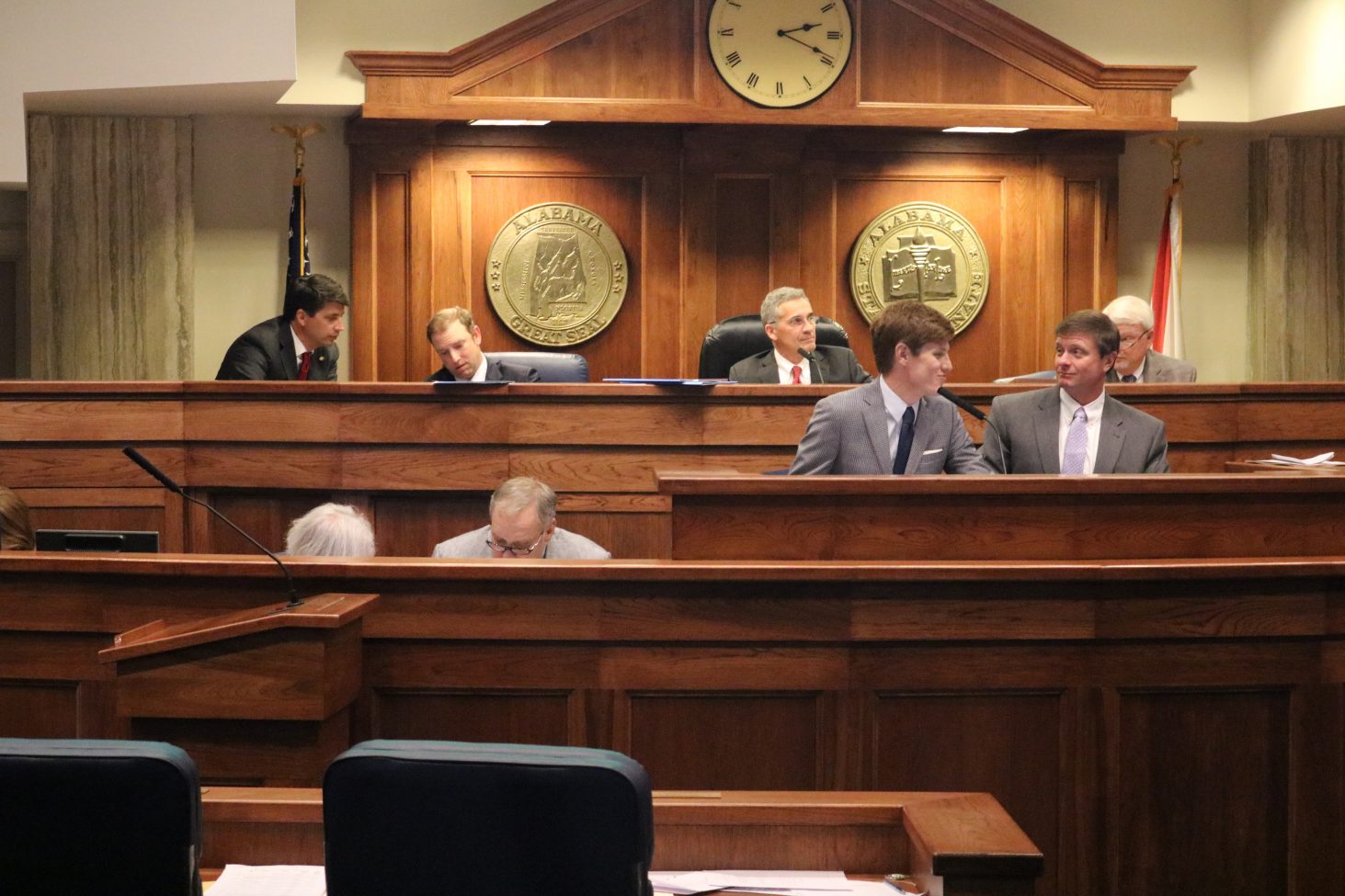By Chip Brownlee
Alabama Political Reporter
Senators approved a $2 billion General Fund Budget, the largest in about a decade, but delayed voting Tuesday on the 3 percent pay raise for state employees Gov. Kay Ivey proposed earlier this year.
The Senate voted 26 to 2 to pass the budget that will fund all of Alabama’s non-education agencies, fulfilling one of the chamber’s only constitutional requirements weeks before the scheduled end of the session.
The appropriations bill will head to the Alabama House of Representatives for the next leg of its journey to the governor’s desk.
“Although the past few budgets have been lean, through conservative fiscal practices and living within our means we have been able to come out of those years and pass a robust budget without having ever raised new taxes on hard-working Alabamians,” said Senate President Pro Tem Del Marsh, R-Anniston.
Buoyed by higher revenues and holdover money from last year, the Legislature is set to pump one of the largest injections of funding in recent history into the Department of Corrections, needed to help the agency comply with recent court rulings ordering healthcare and mental healthcare delivery improvements and staffing increases.

The Alabama Senate considers bills on Tuesday, Feb. 20, 2018.
For many of the state’s other large agencies, the funding increases are more modest.
“I think we are in good shape in terms of the appropriations that passed today being able to be met by the projections of revenue,” said said Sen. Trip Pittman, who chairs the committee responsible for writing the General Fund Budget.
Senators considered the governor’s proposed 3 percent pay raise for state employees but delayed voting on the bill. Pittman, who won’t be returning to the Legislature next year after announcing he won’t seek re-election, said he expects the pay raise back in the Senate on Thursday after a few more days of negotiations.
The pay raise would be the first cost-of-living raise since 2008, though employees have received merit raises since then. Senators are still considered the exact amount of the pay raise.
“You have to be careful because they’re recurring,” Pittman said. “In this case, it is warranted to give a pay raise because we can afford it this year, but there are going to have to be some steps taken next year. The pay raises will be sustained but there are some other areas of the budget that may be impacted.”
Some want to increase pay by more than 3 percent and others want pay increases for state retirees included in the plan.
Pittman said he wasn’t sure retirees will see an increase.
ADOC would see its funding increase by $51 million in the next fiscal year, which begins on Oct. 1. That would be accompanied by a separate $30 million budget adjustment for this fiscal year that hasn’t yet received the Senate’s approval.
Ivey and Corrections Commissioner Jeff Dunn have said the funding increases are needed to remedy the “horrendously inadequate” conditions U.S. District Judge Myron Thompson identified in his ruling.
Maria Morris, senior supervising attorney for the Southern Poverty Law Center, the group that filed the lawsuits against the state over prison conditions, said the ADOC increase was a “good first step” but more needs to be done.
“While the level of mental health care in ADOC facilities was deemed ‘horrendously inadequate’ in the summer of 2017, this budget only begins to apply to ADOC in October 2019,” Morris said. “We will continue to monitor the Legislature this session to address funding shortages for the current fiscal year and beyond.”
The Alabama Medicaid Agency, the Department of Public Health, the Department of Human Resources and the Alabama Law Enforcement Agency will see moderate increases in this budget.
“We’re actually spending less this year in Medicaid even though we had to appropriate more,” Pittman said, noting that the funding needed this year was less that previously anticipated.
Medicaid will see a nearly $54 million in additional funding next fiscal year, an increase of about 7.5 percent, if the budget passes the House and is signed by the governor. ALEA would get extra funding, about $3.2 million, to hire and train 30 new state troopers. The agency has long said it needs more money for more officers on the roads.
The Department of Health could receive $8 million more next year, and the Alabama Department of Economic and Community Affairs could see a $4.7 million increase over last year’s budget.
Most other agencies were level funded.
While the budget process this year saw relatively few bumps in the road — shorn up by money from a settlement with BP and a growing economy — next year may not be so smooth. Preliminary budget estimates project a $125 million shortfall.
Pittman said this year’s budget includes some recurring costs, like the pay raises, and budget increases that perhaps lawmakers should have been more cautious of. The South Alabama legislator said election years can get in the way of responsible budgeting as lawmakers attempt to shore up their constituencies.
“I’ve always tried to be fiscally conservative and tried to anticipate the recurring costs and the long-term costs,” Pittman said. “I don’t think maybe doing that as well in this budget as we have in previously. But ultimately, if the economy stays strong, I think things will be okay.”


















































